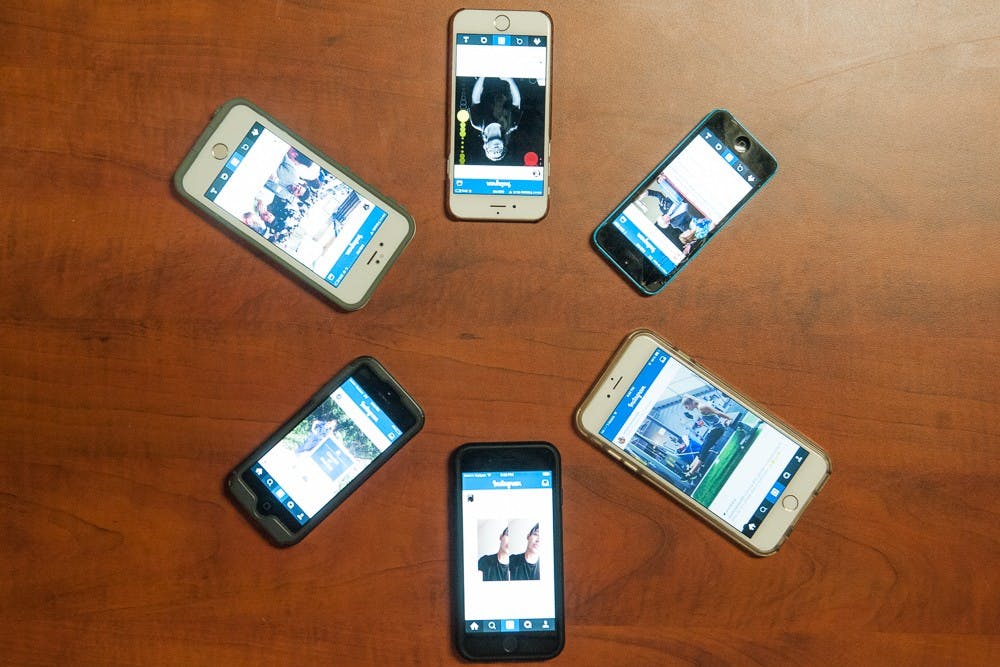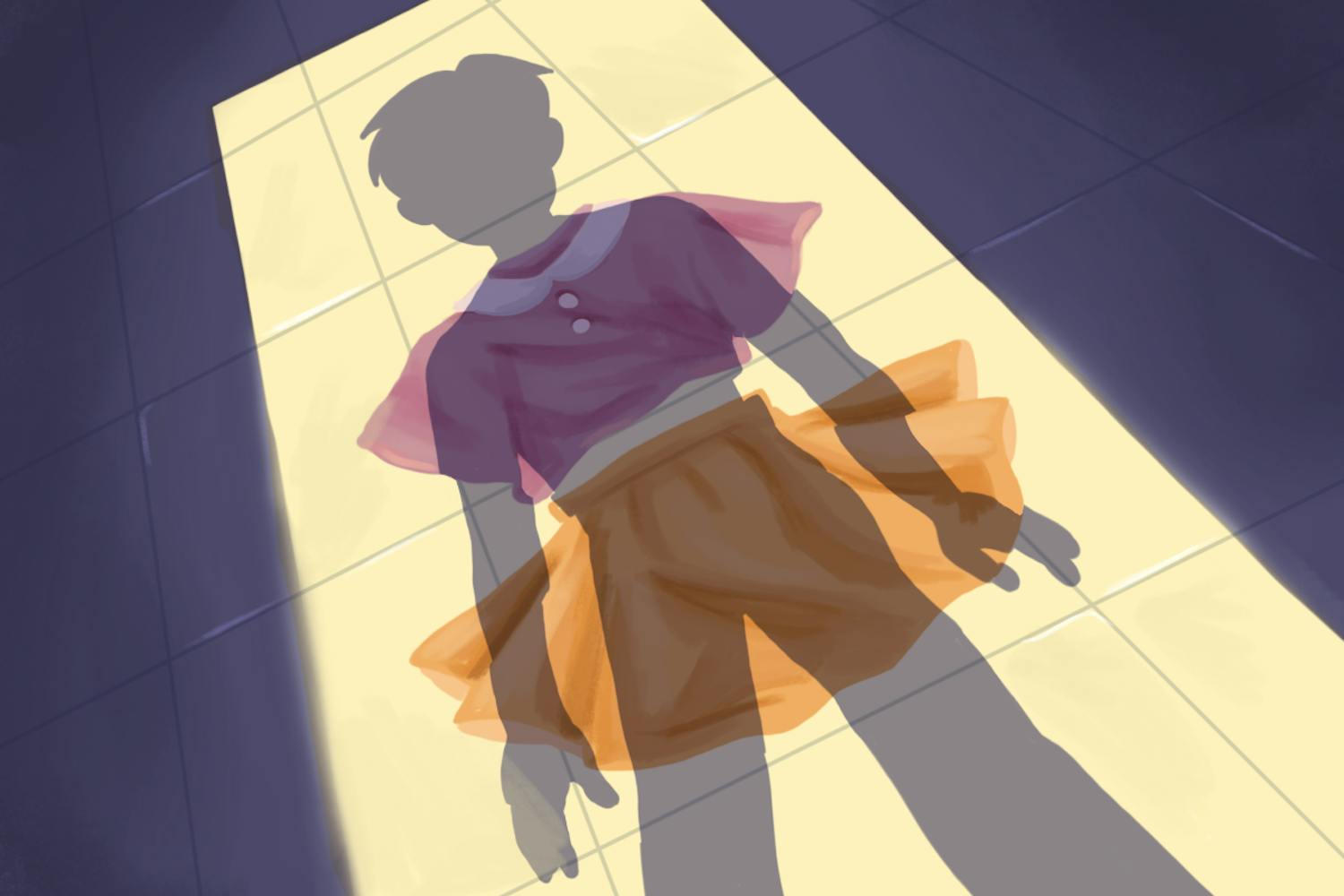Hi, my name is Noelle D. Lilley and I am a recovering Instagram addict. (Chorus: “Hiiiiii, Noelllleeee.”)
For those of you that have been living in a cave for the past five years, Instagram is an online and mobile social network where users can share videos and photos, created in 2010 by Mike Krieger and Kevin Systrom. I was reluctant to download Instagram when it was first gaining popularity. Being the difficult go-against-the-grain, defy-the-status-quo person that I can be, I refused. However, as luck would have it, I eventually gave in and made one. And thus, the obsession began.
I loved Instagram. I posted pictures like it was my job. I hashtagged until I could hashtag no more. I was a certified Valencia and Rise filter expert. I would scroll and scroll, keeping up to date with the lives of my friends and family and a few celebrities (mostly just Usher, shout out to my boo). I loved it and couldn’t imagine not having it.
After a year or so of having Instagram, my account was deleted. This was a complete mistake on Instagram’s side due to fake accounts impersonating me and other unfortunate circumstances. However, due to Instagram’s rules and regulations once an account is removed, there’s no way to undo it. Let’s just say that I was upset. I even cried. I’m not talking a little sniffle here and there; I’m talking full-on tears streaming down my face. Feel free to judge me.
The first few weeks without Instagram really sucked. What were my friends up to? What were they eating? How were their pets doing? What filters were they using?
But then, slowly but surely, I got over it. I didn’t feel the once constant need to post or check my friend's posts. And as I got over it I began to notice that my overall mood and happiness improved.
Studies have shown that people who are extremely active online and on social media — particularly Facebook — tend to show more signs of depression, envy and loneliness. This is because Facebook users tend to think, as one 2012 study done by researchers at Utah Valley University so eloquently entitled it, “They Are Happier And Having Better Lives Than I Am: The Impact of Using Facebook on Perceptions of Others’ Lives.”
This study of 425 undergraduate students concluded that those who have used Facebook longer felt that others were happier, agreed less that life is fair and agreed more that others had better lives.
Also, the study found that people who had a large number of Facebook friends that they didn’t know in real life thought that their friends had better lives than them. However, Facebook users weren’t taking into account that people only post about the positive in their lives. It’s not that their friends were happier or more successful than they were, they just weren’t posting about their sadness or failures.
I have felt all of those emotions before but on Instagram, while casually creeping through someone’s photos. You know the deal: you’re looking through a potential "bae's" Instagram and somehow you end up on his ex-girlfriend’s cousin’s best friend’s sister-in-law’s vacation photos from Hawaii in 2012.
Instagram personifies all the negative feelings of Facebook without the redeeming qualities. On Facebook, you can find new movies and shows, weigh in on a heated debate about the 2016 presidential election or broaden your knowledge from a scientific article a friend shares. On Twitter, you can keep up with the news, entertainment and current events in addition to looking at the photos of others.
Unlike Facebook or Twitter, Instagram is just about photos and videos. Instagram allows you to consume intimate snapshots of the relationships, friendships and hobbies of others without giving you any other distractions from the jealousy you might feel.
Instagram can also reduce feelings of self-worth and value to something as minuscule as a like or comment. My friends and I used to delete a photo if we didn’t get enough likes or comments. I felt prouder than I should have for maintaining an average of around 90 to 100 likes. I had perfected the art of posting: the best time to post a photo, the perfect caption and just enough (BUT NOT TOO MANY) hashtags. I even kept a memo in my phone’s notepad of clever captions to use in the future. I’m not kidding.
Yet, I still felt awful about myself when I saw a selfie with 300 likes and 50 plus captions telling the girl how beautiful she was. I would get personally offended when someone I knew didn’t follow me.
Now that I don’t have my Instagram, I understand how ridiculous all of that was. For what? Likes? Attention? An artificial sense of worth? I also understand that not all users are like I was. If this doesn’t apply to you, then rock on sister. But next time you’re on the verge of a panic attack because you didn’t hit 80 likes, put the phone down and breathe. It’s. Just. Instagram.
Related Links:
How-To: Be "Successful" on Instagram
Five Cute Animal Instagrams to Start Off the Semester
Reach the columnist at nlilley.nl@gmail.com or follow her on Twitter @noelledl_
Editor’s note: The opinions presented in this column are the author’s and do not imply any endorsement from The State Press or its editors.
Want to join the conversation? Send an email to opiniondesk.statepress@gmail.com. Keep letters under 300 words and be sure to include your university affiliation. Anonymity will not be granted.
Like The State Press on Facebook and follow @statepress on Twitter.




